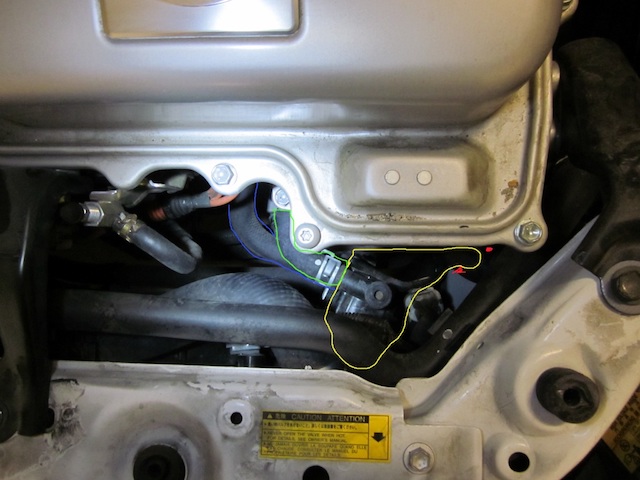Like many car components, water valve sensors can eventually stop working properly. In this article, we'll explore what a water valve sensor is, how it can fail, the typical signs of a faulty sensor, and how to identify and fix the issue. Whether you're a Prius owner or just curious about car cooling systems, this guide will help you understand the role of this important part. Image credit: Stomper88 Most Toyota Prius models come equipped with a water valve, an essential component of the vehicle’s cooling system. This device regulates the flow of coolant to three key areas: the engine, the heater core, and the coolant reservoir. Also known as a coolant flow control valve, it has separate passages for each of these parts and works in conjunction with the Engine Control Module (ECM) to open and close them based on engine conditions. Inside the water valve is a small but crucial component: the water valve sensor. This electronic device sends signals to the ECM about the position of the valve, ensuring it operates correctly with the engine. If the sensor fails, it can cause improper coolant flow and lead to serious issues over time. One common cause of water valve failure in the Prius is a malfunctioning radiator. When the radiator doesn’t function as it should, the engine can overheat, which may damage the water valve sensor and lead to a shorted circuit. Some 2004–2009 Prius models are particularly susceptible to this problem, often resulting in a stuck water valve. A sticking water valve can disrupt coolant flow, leading to overheating, potential engine damage, or even coolant leaks. That’s why it’s important to be aware of the symptoms that indicate a failing water valve sensor in your Prius. The most obvious sign is the "Check Engine" light, but this can indicate a wide range of issues. Here are more specific symptoms that suggest a problem with your water valve sensor: If you notice any of these signs, especially if they occur together, it’s worth investigating further. If you're experiencing some of the symptoms mentioned above, the first step is to use an OBDII scanner to check for diagnostic trouble codes. The code P1121 typically indicates that the water valve is stuck or that there's a short or corrosion in the sensor circuit. If the code confirms a faulty water valve sensor, the only solution is to replace the entire water valve assembly. You can either purchase an OEM replacement part (such as part number 16670-21010 for the Prius) and install it yourself, or take your car to a Toyota dealership for professional service. If you're handy with tools, there are many online tutorials available that walk you through the process of replacing the water valve. Many of them are tailored for the Prius, making the task easier for DIYers. A Mini Excavator is a small construction machine used for digging and digging tasks. It is also commonly known as a compact excavator or a mini excavator.Nuoman mini excavators typically weigh from 0.8 to 6 tonnes and are designed to be flexible and versatile for use in tight spaces and urban environments. They are equipped with a hydraulic system that powers the digging arm and bucket attachments.Mini excavators are commonly used in a variety of construction projects such as landscaping, trenching, digging foundations, demolition and utility work. They can be operated by one person and are commonly used in residential, commercial and industrial settings.Some of the key features of a mini excavator include a rotating platform for 360-degree movement, rubber or steel tracks for stability and traction, and a variety of bucket attachments for different digging and lifting tasks. They also come with a cab or canopy for operator safety and comfort. Mini Excavators,Excavators,Excavator manufacturers,Diesel Excavator,Electric Excavator Shandong Nuoman Engineering Machinery Co., Ltd , https://www.chinanuoman.comWhat Is A Water Valve Sensor?

Prius Water Valve Sensor Failure
The Most Common Symptoms Of A Failing Water Valve Sensor
How To Diagnose A Failing Water Valve Sensor